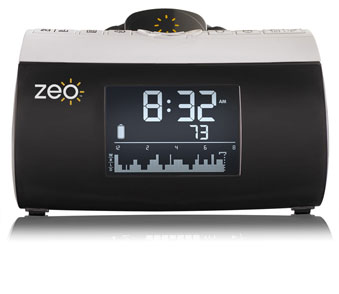 Last week MobiHealthNews broke the news that sleep tracking and coaching company Zeo had closed up shop and was looking for a buyer. With more than 600 shares on Twitter and dozens of comments, it's already one of our most discussed articles of the year. There were many worthwhile comments on our story, below are a few of our favorites from MobiHealthNews readers. These were edited for typos and condensed in some cases:
Last week MobiHealthNews broke the news that sleep tracking and coaching company Zeo had closed up shop and was looking for a buyer. With more than 600 shares on Twitter and dozens of comments, it's already one of our most discussed articles of the year. There were many worthwhile comments on our story, below are a few of our favorites from MobiHealthNews readers. These were edited for typos and condensed in some cases:
UPDATE: Whitley Howlit: As a former employee, one of the last in fact, maybe I can clear a few things up. First, as far as validation of the data, a simple Google search for "Zeo Validation" shows: http://www.myzeo.com/sleep/faqs/general-questions/how-accurate-zeo Secondly, at the end, Zeo Bedside was sold at $149.00 and the Zeo Pro was at $99. Please notice your price of $400.00 is an Amazon price and in order to understand Amazon pricing, you need to understand the Amazon Algorithm that determines pricing based on supply and demand: Less Supply + More Demand = Higher Prices. If the factory is in fact not producing anymore, demand go through the roof. Third, I really wish I could share information on all of the Universities, science and medical research teams, insurance companies, and government agencies both foreign and domestic who relied on Zeo for their sleep data, but unfortunately due to NDAs, I cannot. Additionally, if it was classified as a medical product, it wouldn't have been available to consumers direct. Doing so would have been cost prohibitive for both Zeo and the end consumer.
Ejstensjn: Awful news. What I learned from this discussion: Investors do what other investors do. This is what creates fads and bubbles. Zeo failed to explain their product. Fitbit and others do nothing of the sort. Zeo: Great idea, but an idea before its time and without a valid business model. Sincerely hope someone else picks up the torch.
Dion Madsen: My perspective, as an investor who diligenced the company several times was that it never passed the "so what" test. Meaning, you buy the device because you have trouble sleeping and then you wear it and you confirm that you have trouble sleeping. So now you just confirmed something that you already knew, so what do you do next? Another aspect that the company tried to play up is the billions of "sleep nights" data that they stored in their database that surely had value. Well, I haven't seen health companies turn these kinds of unstructured patient data sets into information that other people are willing to pay for.
Anonymous: In medicine we are drilled to only accept solutions that have a study (and preferably a meta-analysis) that shows statistical significance. Then we drill into the methodology, who funded the research and where it was published before letting it pass mentally as clinically successful. Everything else gets stonewalled with a 'there's no evidence'.
Gwern: Zeo is massively cheaper on a per-night basis than a polysomnograph, so one can get orders of magnitude more nights' data. Between the better validity and the greater quantity of data, even if the Zeo analysis was only medium-correlated with a polysomnograph, it could easily deliver much better answers on some questions. And saying 'no clinical evidence base' seems exaggerated; as the article mentioned, Zeos were used by sleep researchers.
Gwern: Maybe the headband was too uncomfortable. Maybe the hobbyists and researchers weren't a big enough market to justify further investment. Maybe the replacement headbands cost too much and scared people off. Maybe the competitors posted fake Amazon reviews. Presumably Zeo Inc employees know, but they're not talking.
Michael Kremliovsky: This is an important lesson for other solutions looking for a problem in healthcare domain. This is also a lesson for startups that neglect human factors.
D Zar: I think the fundamental issue is that they were trying to be in the diagnosis/healing space yet were not FDA certified to do either. "Traditional" medical device companies constantly hear the "show me the study" mantra that has been vacant in so much consumer health start-up/app work. I'm hopeful things are changing. I'm all for innovative products in this space, but they must be proven to be useful. Anything else is just a fad or, worse, dangerous.
Check out the full discussion and weigh-in with your own comments here.
















